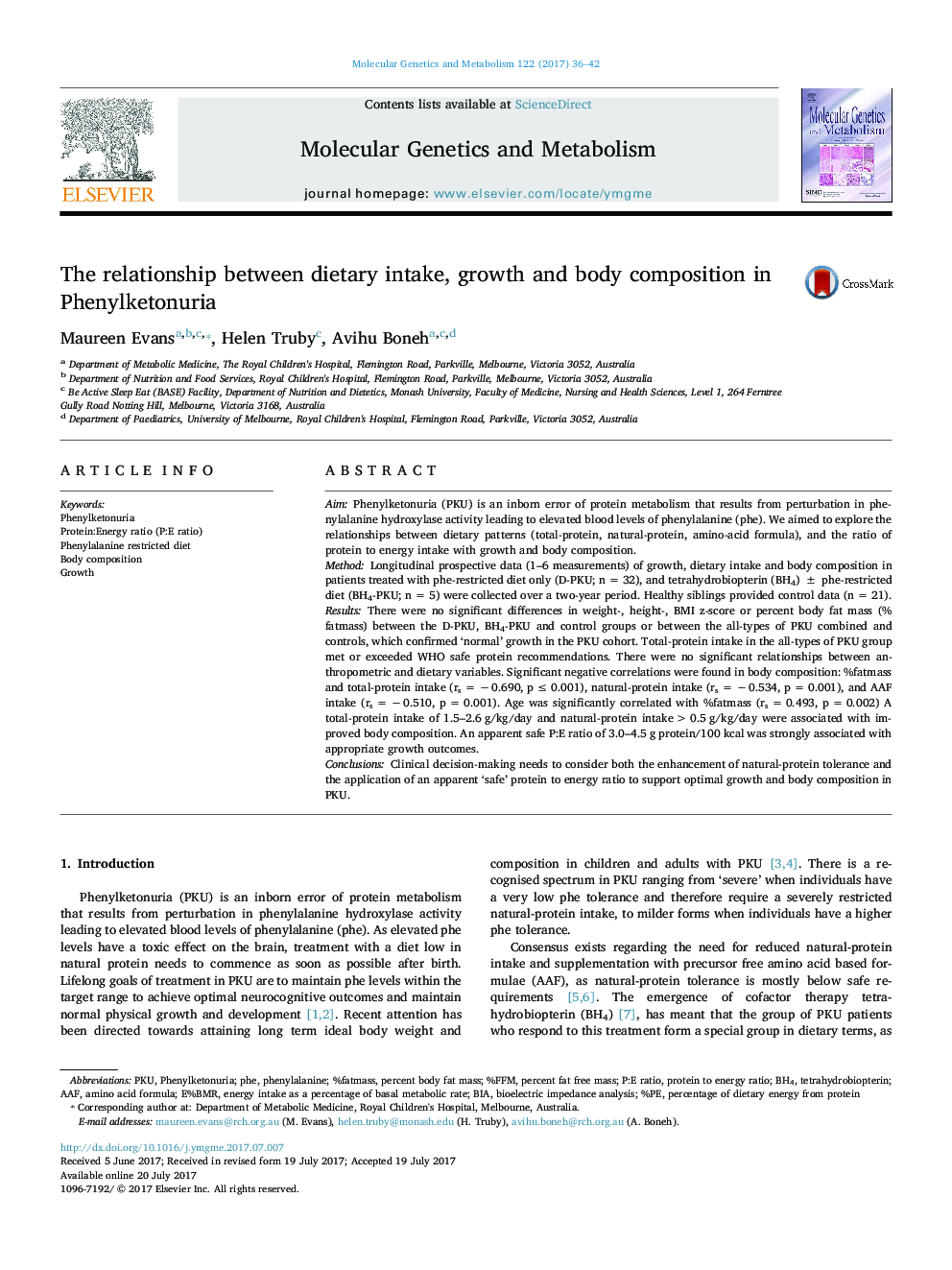| کد مقاله | کد نشریه | سال انتشار | مقاله انگلیسی | نسخه تمام متن |
|---|---|---|---|---|
| 5513888 | 1541553 | 2017 | 7 صفحه PDF | دانلود رایگان |
- Children with PKU demonstrate growth patterns similar to healthy children.
- Higher total protein intake in children with PKU is associated with lower body fat mass.
- A P:E ratio associated with optimal growth and body composition in children with PKU was 3.0-4.5Â g protein/100Â kcal.
AimPhenylketonuria (PKU) is an inborn error of protein metabolism that results from perturbation in phenylalanine hydroxylase activity leading to elevated blood levels of phenylalanine (phe). We aimed to explore the relationships between dietary patterns (total-protein, natural-protein, amino-acid formula), and the ratio of protein to energy intake with growth and body composition.MethodLongitudinal prospective data (1-6 measurements) of growth, dietary intake and body composition in patients treated with phe-restricted diet only (D-PKU; n = 32), and tetrahydrobiopterin (BH4) ± phe-restricted diet (BH4-PKU; n = 5) were collected over a two-year period. Healthy siblings provided control data (n = 21).ResultsThere were no significant differences in weight-, height-, BMI z-score or percent body fat mass (%fatmass) between the D-PKU, BH4-PKU and control groups or between the all-types of PKU combined and controls, which confirmed 'normal' growth in the PKU cohort. Total-protein intake in the all-types of PKU group met or exceeded WHO safe protein recommendations. There were no significant relationships between anthropometric and dietary variables. Significant negative correlations were found in body composition: %fatmass and total-protein intake (rs = â 0.690, p â¤Â 0.001), natural-protein intake (rs = â 0.534, p = 0.001), and AAF intake (rs = â 0.510, p = 0.001). Age was significantly correlated with %fatmass (rs = 0.493, p = 0.002) A total-protein intake of 1.5-2.6 g/kg/day and natural-protein intake > 0.5 g/kg/day were associated with improved body composition. An apparent safe P:E ratio of 3.0-4.5 g protein/100 kcal was strongly associated with appropriate growth outcomes.ConclusionsClinical decision-making needs to consider both the enhancement of natural-protein tolerance and the application of an apparent 'safe' protein to energy ratio to support optimal growth and body composition in PKU.
Journal: Molecular Genetics and Metabolism - Volume 122, Issues 1â2, September 2017, Pages 36-42
